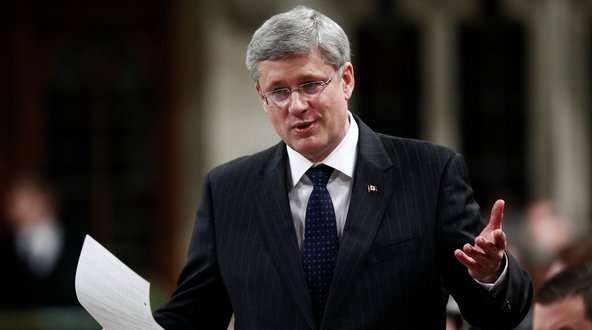On Tuesday, the British Parliament called on Mr. Murdoch “to give evidence to discuss his comments” about the culture of paying off police that he made on March 6 to nearly two dozen journalists and newspaper executives from The Sun. A tape of the 45-minute conversation first emerged on the British investigative journalism Web site Exaro News on July 4.
On the audiotape, Mr. Murdoch listens to the journalists, nearly all of whom had been questioned for hacking and other illegal news-gathering practices, talk about the impact of the scandal on their lives. He told them, “I’m just as annoyed as you are at the police, and you’re directing it at me instead.” Through the conversation, Mr. Murdoch spoke in a gravelly and often indignant voice about how The News of the World, now defunct, was targeted for practices that were largely commonplace in British journalism.
“One of our high-priced lawyers would say it’s our fault, but that situation existed at every newspaper in Fleet Street,” Mr. Murdoch said.
He also promised to continue to provide support to journalists even if they are found guilty.
“I will do everything in my power to give you total support, even if you’re convicted or get six months or whatever. I think it’s just outrageous,” he said, adding, “I don’t know of anybody or anything that did anything that wasn’t being done across Fleet Street and wasn’t the culture.”
Mr. Murdoch was invited back to appear before Parliament, according to a government official who would not be named under standard parliamentary rules. At this point, members of Parliament have not officially sent Mr. Murdoch an invitation and an interview is not expected to take place until after the House of Commons returns from its summer break. Because Mr. Murdoch has been invited and not summoned, the meeting will take place when Mr. Murdoch is in Britain.
Ashley Huston, a spokeswoman for News Corporation, said in a statement that “Mr. Murdoch welcomes the opportunity to return to the Select Committee and answer their questions. He looks forward to clearing up any misconceptions as soon as possible.”
Mr. Murdoch’s voice on the tapes sounds notably different from the more subdued tone he took when he spoke before Parliament about the hacking scandal that closed The Sun, forced the company to withdraw its takeover bid of British Sky Broadcasting, also known as BSkyB, and helped lead to the split of News Corporation into two separate companies. In July 2011, he appeared with his son James before the Culture, Media and Sport Committee, then in April 2012, he appeared before a judicial panel.
In the past, Richard Greenfield, a media analyst at BTIG Research, predicted that the problems presented by the hacking scandal would ultimately benefit shareholders because of the eventual split into two companies. Last month, he wrote on his blog that News Corporation had made strides and that “shares have rebounded from fears tied to the phone hacking scandal.”

Stephen Castle contributed reporting.
Article source: http://www.nytimes.com/2013/07/10/business/media/parliament-asks-murdoch-to-discuss-hacking.html?partner=rss&emc=rss

